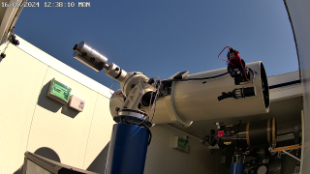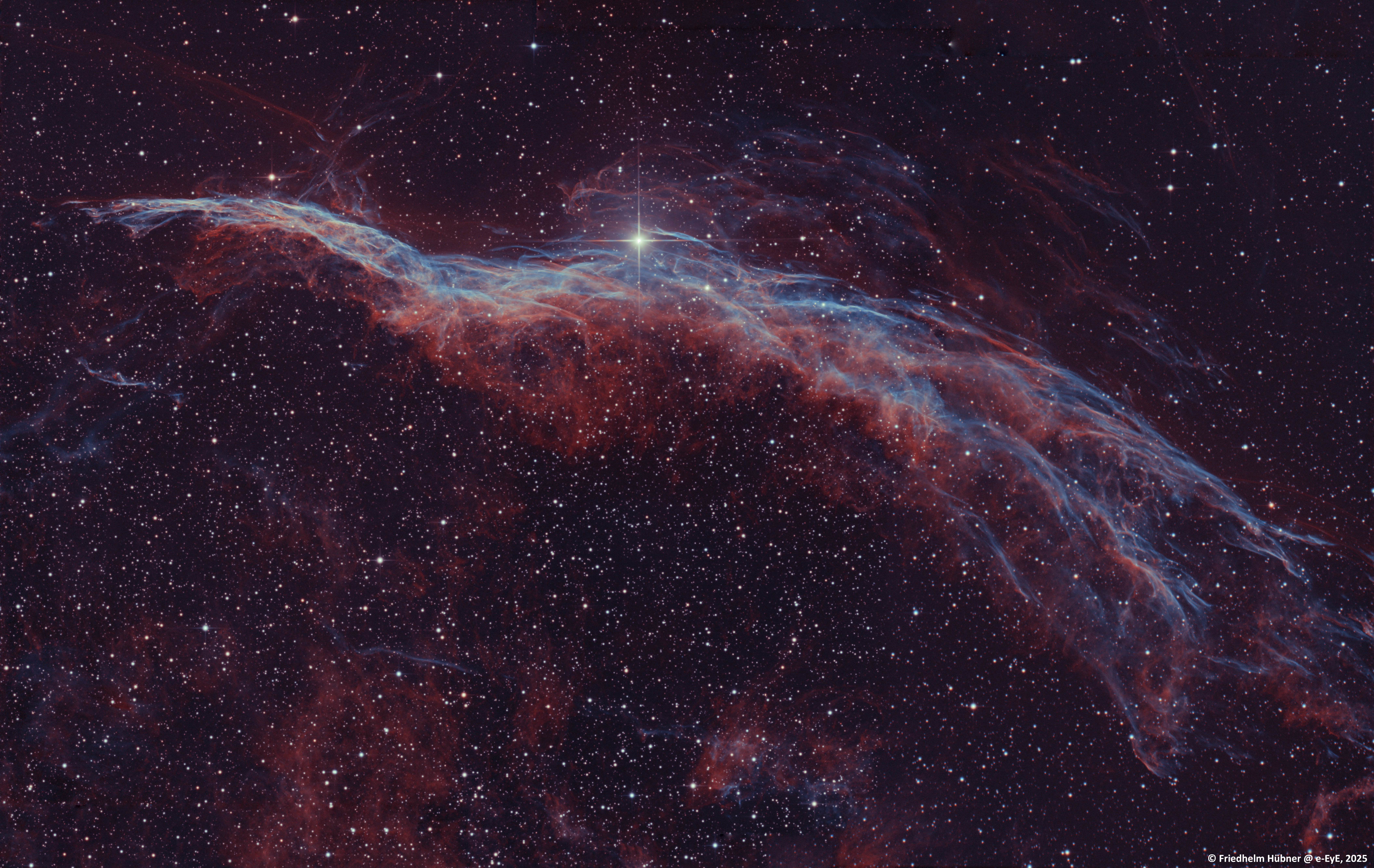50° North, 8° East, these are approximately the coordinates where I have taken most of my astropictures. Also presented here are images made while travelling on La Palma or in Chile.
 As a member of our local club, the Amateur Astronomers of the Rheingau (AAR), I have the privilege to use the club's observatory near the little village of Presberg, belonging to Rüdesheim am Rhein.
Presberg is situated north of the Taunus-ridge on an elevated plain at an altitude of 380 meters, surrounded by the valleys of Groloch, Wisper and the Ernstbach.
As a member of our local club, the Amateur Astronomers of the Rheingau (AAR), I have the privilege to use the club's observatory near the little village of Presberg, belonging to Rüdesheim am Rhein.
Presberg is situated north of the Taunus-ridge on an elevated plain at an altitude of 380 meters, surrounded by the valleys of Groloch, Wisper and the Ernstbach.
Conditions
 The Rheingau is situated on the western edge of the greater Rhine-Main-area, an agglomeration of 2,500 km2 with about 2.2 million inhabitants, numerous towns and cities, the Frankfurt airport and industrial areas with the corresponding light pollution.
The Rheingau is situated on the western edge of the greater Rhine-Main-area, an agglomeration of 2,500 km2 with about 2.2 million inhabitants, numerous towns and cities, the Frankfurt airport and industrial areas with the corresponding light pollution.
Air pollution improved considerably since the 1970s, so transparency often is quite good despite the high humidity caused by the river Rhine, but light pollution and the growth of the light pollution domes increased massively. Contrails are more and more responsible for thin cloud-decks during phases of fair weather.
In spite of the proximity to the greater Rhine-Main-area at the site of the AAR-observatory in an average night the milkyway is clearly visible, in the zenith finely structured; M31 almost always can be seen with the naked eye.
But in the east fainter objects below 40° elevation disappear in the glow, in the south it is the same below 20° elevation. So the summer milkyway-objects in Sagittarius or Scorpion are seldom seen to advantage.
In an average night I would rate our skies according to the Bortle Dark-Sky Scale a 4 (Rural/suburban transition), in a rare good night it gets a 3 (Rural sky).
Astrophotography
After I realized that my favourite deep sky-objects could be extracted again from the orange-grey murk with the help of digital cameras and image-processing tools, I changed from solely visual observing to photography.
I mainly use a “Dual Rig” on a 10Micron GM1000 HPS, a 10" f4-Newton with a Moravian G3 16200 and a 6" f5-Newton with a Touptek 294CP mounted in parallel. Both are controlled and synchronized with N.I.N.A. The Touptek supplies the colour data, while the Moravian supplies the luminance- and the narrowband-frames.
 Since autumn 2020 after a longer period of modernization I can use my 40-centimeter f5-Newton again, called the “White Elephant”.
Since autumn 2020 after a longer period of modernization I can use my 40-centimeter f5-Newton again, called the “White Elephant”.
Late in the summer 2024 the telescope was relocated to the Remote-Hosting-facility e-EyE in the spanish Extremadura.
© Friedhelm Hübner, last revision: 3.12.2025
